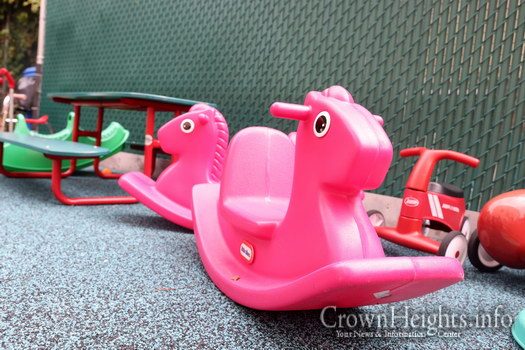
Helping Children Improve Negative Character-Traits
Question:
I am a teacher of one of the lower grades at an elementary school. I have noticed certain middos (character-traits) in my students that need to be worked on. The one that bothers me most is verbal-bullying that I noticed going on between a few of my students. There are students that are constantly putting down other students and this is destroying their self-confidence and chances of personal growth and success. Has the Rebbe given advice to teachers dealing with the middos of their students?
Answer:
Firstly, it is admirable that you realize that bettering the Middos of the students is an essential part of the teacher job. The Rebbe writes to the Nshei Chabad of Boro-Park (Igros, Vol. 8 p. 213; #2456) that “I am especially happy to see in your notes that you have included in the learning curriculum halachos and minhagei Yisrael … it is self-understood that there should be a focus on middos tovos as it is well-known the saying of Rabbi Akiva that ahavas Yisrael is a basic principle of the Torah.”
With this foundation, let us review some of the guidance the Rebbe gave in the area of bettering the middos of Talmidim:
(1) Verbal Bullying:
It is important to explain to the students of the class that Hashem loves every Jew even more than parents love their only child who was born to them later in life. In addition, Hashem hears and sees everything. Thus, when one speaks positively about one of His children, Hashem is listening and one needs to be careful when speaking about the son of the king in his presence… How much more so is the case if one speaks negatively about the son of the king, in his presence!
The Rebbe adds: “To re-enforce this message, it would be beneficial to hang up posters in the classrooms that have the message that we should be careful with our words because there is an eye that sees and an ear that hears.” (Igros, Vol. 20 p. 143; #7569).
(2) Anger Management:
Ridding oneself from any negative character-traits is a slow and step-by-step process. With anger management, the way to start this process is by working — with the individual student — to be aware of when his anger is beginning to come out and to make sure that they do not allow their anger to be expressed in words. Words have the power to magnify an emotion and getting in the habit of refraining from expressing a negative emotion will eventually weaken the emotion.
(3) Arrogance:
The Rebbe adds: The above-mentioned advice can be used with those that struggle with arrogance as well. In addition: It is a good idea to have the first seventeen lines of perek 41 of Tanya memorized by heart and when one feels their negative emotions coming to the forefront, think about these lines of Tanya. (Igros, Vol. 14 p. 459; #5239)
(4) Lack of Motivation:
It would be a good idea that in addition to the student’s academic learning, find him a position in communal activities in which he will be a leader. An example of this would be leading a group of children who are younger than him. We see that success in this area contributes vigor and independence to a young person. (Igros, Vol. 19 p. 373; #7372)
(5) Kleptomania (stealing):
Kleptomania is the recurrent inability to resist urges to steal items that you generally don’t really need and that usually have little value. Kleptomania is a rare but serious mental health disorder.
The Rebbe’s advice on this is the following:
“Firstly, this tendency should be considered like an illness and should be treated by a professional. In addition: The parents should give Tzedakah in his merit before shacharis and mincha and to check the kashrus of his Tzitzis. It is especially important to make sure that the child is careful with keeping his head covered with a Yarmulka and to check the mezuzos in the home. (Igros, Vol. 5 p. 175; #1378)
[On the topic of stealing, the Rebbe writes (Igros, Vol. 16 p. 170; #5948) to someone that wrote to the rebbe that he is stealing from his time to learn Chassidus. The Rebbe responded that “stealing time” to learn Torah is permissible according to the Zohar.]
The Moshiach Connection:
Working on our middos helps prepare us for the era of Moshiach. How so? The Rambam describes the era of Moshiach as an era in which people’s negative traits will no longer exist. In his words (final halacha of the Rambam): “In that era, there will be neither famine or war, envy nor competition. For good will flow in abundance and all the delights will be freely available as dust. The occupation of the entire world will be solely to know G-d.”
“In our era so close to the Geulah,” the Rebbe teaches, “we ought to get ourselves used to living a life that resembles the life of a Jaw in the era of Redemption.” Focusing on the fact that the Geulah is near helps one beat his negative traits by uplifting himself from that situation and living on a higher plane.
Rabbi Gershon Avtzon is the Rosh Yeshiva of Yeshivas Lubavitch Cincinnati and a well sought after speaker and lecturer.















